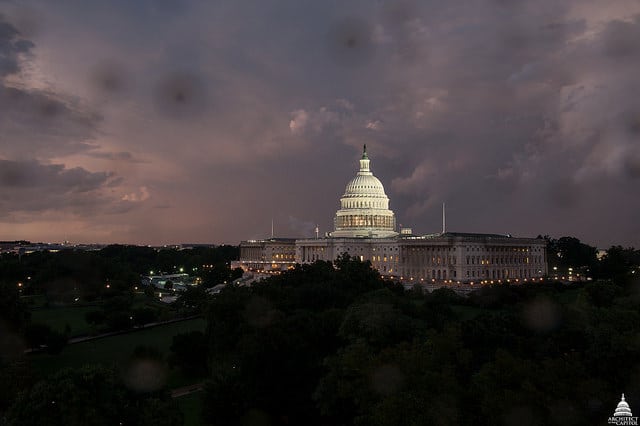
Thanks to emergency funding from Congress, the Department of Energy’s civilian nuclear power program will get about what the White House asked for in 2023 under a proposed spending plan approved by congressional appropriators this week.
The Senate voted 68-to-29 Thursday to adopt the full-year appropriations bill, which then went to the House for a Friday vote. The House had not voted at deadline for RadWaste Monitor, but it was expected to approve the bill, which President Joe Biden (D) said this week he would sign.
DOE’s Office of Nuclear Energy (NE) would get a little under $1.5 billion in the omnibus unveiled Tuesday morning, some $200 million less than requested and the roughly $1.6 billion NE was appropriated for the 2022 fiscal year. To that, the bill would add $300 million more in emergency funds for Nuclear Energy, bringing the total proposed fiscal 2023 appropriation for Nuclear Energy up to roughly $1.8 billion.
The omnibus would also greenlight around $29 million for DOE’s nuclear fuel cycle laboratory research and development subprogram,$18 million less than the White House’s $47 million request.
The bill would again refuse to grant the administration’s request to fund NE’s Versatile Test Reactor project, which also went unfunded in 2022. The White House sought $45 million for the project this year.
Meanwhile, NE’s Integrated Waste Management System line, part of the Fuel Cycle Research and Development subprogram, would receive around $53 million under the omnibus, consistent with the White House’s request and an increase of $35 million or so from the 2022 appropriation.
DOE had proposed moving funding for its ongoing interim storage inquiry under the Integrated Waste Management program and away from its Nuclear Waste Disposal account for the 2023 fiscal year.
In the omnibus bill’s explanatory statement, congressional appropriations chastised the agency for attempting such a funding shuffle without prior approval from Capitol Hill. “The Department may not repurpose or re-scope projects identified in control points without prior congressional notification,” the bill said.
Elsewhere, NE’s Used Nuclear Fuel Disposition Research and Development line would remain about flat under the omnibus at around $47 million, a decrease of $3 million or so from the $50 million the subprogram got in the previous fiscal year and only about $125,000 more than requested.
Congressional appropriators directed NE to use some of its 2023 budget to “establish a road-ready, dry storage packaging configuration capability” for DOE-owned spent nuclear fuel in conjunction with the agency’s Office of Environmental Management. If the spending bill becomes law, the two DOE offices are required to update Congress on their progress within six months or so.
Outside of DOE, the Nuclear Regulatory Commission was approved for the $137 million or so it requested. The government’s nuclear-power safety regulator, NRC planned to collect most of its required funding — roughly $775 million for fiscal 2023 — from its licensees.
The independent federal Nuclear Waste Technical Review Board, meanwhile, would get its requested appropriation of around $4 million. The board is tasked with ensuring the scientific and technical integrity of nuclear waste disposal, storage and transportation projects undertaken by DOE.
Congress has funded federal agencies at their 2022 levels since Oct. 1 via a string of stopgap budgets known as continuing resolutions.